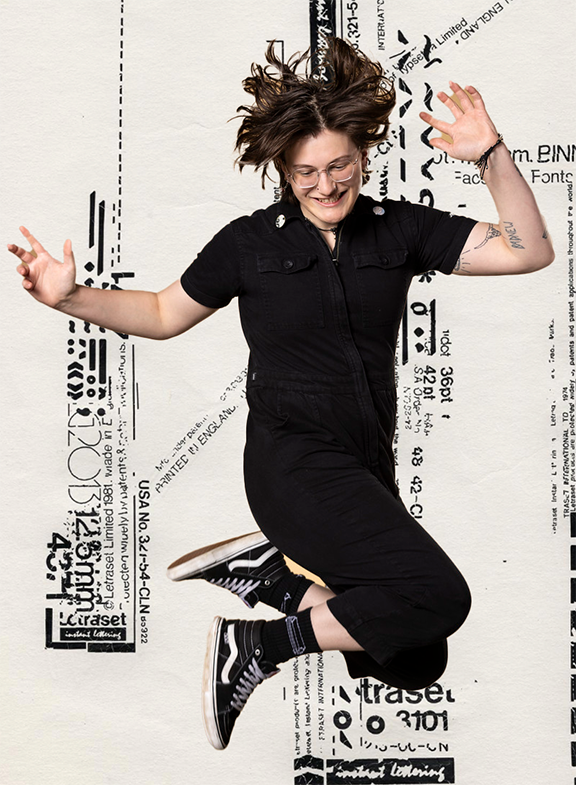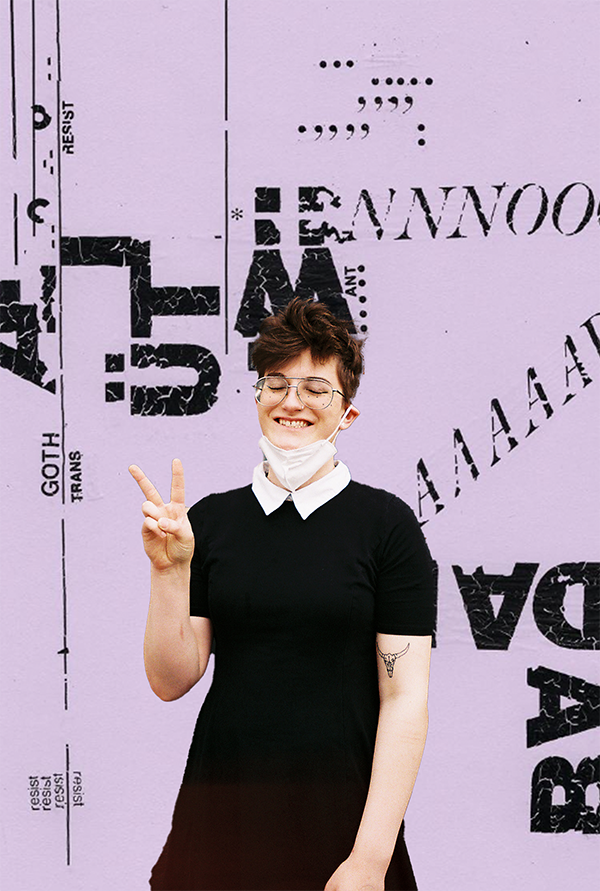phoenix kai vaughan-ende Shows that “Anything is Possible”

phoenix kai vaughan-ende is a multimedia artist & poet in the School of Interdisciplinary Arts & Sciences’ MFA program in Creative Writing & Poetics. This June, they’ll be graduating amongst the rest of their 2024 cohort after spending the past two years engaged in research and conversations surrounding engrained societal codes and binaries. Their work within the University of Washington, as a graduate student and active community member, has inspired IAS faculty and UW leadership. Last month, phoenix was named as one of the Husky 100 Award winners. This award recognizes 100 undergraduate, graduate and professional students from the UW Bothell, Seattle and Tacoma campuses in all areas of study who are making the most of their time at the University of Washington.
phoenix intends to change the world through their creative practice and community interactions. “It sounds cheesy, but I’ve always held onto the idea that anything is possible.” Prior to coming to UW Bothell, phoenix studied Ethnic Studies as an undergraduate student. They describe this education as powerful and ideologically challenging. This experience, coupled with the guidance of their mentors, sparked a passion in phoenix for advocacy and collective liberation, which they see as core to their work. “Writing and art are the medium to help spread that message. My practice is in lineages of social justice movements and informed by the power of words.”
Through a beautiful collection or art and words, phoenix’s thesis project Trans Universe Theory aims to argue that a “non-binary perspective of things is inherently valuable, especially when we look at the smallest parts of our universe and how they resist binaries.” When asked about what this means, phoenix offers photons as an example. “[Photons] act as a particle and a wave simultaneously. How we measure them is where they’re most probable to occur. Fields of knowledge [and] the binaries between them, are really made up.” Their poetry collection utilizes variables of language, presenting layers of thoughts and meanings. This practice was informed by Maxwells Equations, where, in a single equation each variable will represent another equation, and so forth. “Will people really deep dive into the poetry? I don’t think many people will, but the option is there to break it down.”
Although graduate school is not easy, phoenix has enjoyed building individual connections with their peers, and learning from their advisors and mentors, such as IAS faculty Dr. Ching-in Chen and Ted Hiebert. phoenix acknowledges that their achievement as a Husky 100 Award winner would not be possible without the nominations and support from their network. “The award came from those around me, my mentors, my personal life, my undergrad, literally everyone around me. I’m grateful for access and connections. [IAS] professors have made themselves very open and available for support.
phoenix’s journey as a passionate and curious creative will continue after graduation. “My goal now is to change the world and I do think I have very big dreams, but… [in] seeking out to change the world, you are effectively doing so.”
If you’re interested in following phoenix on their journey to change the world, you can find them on Instagram.

